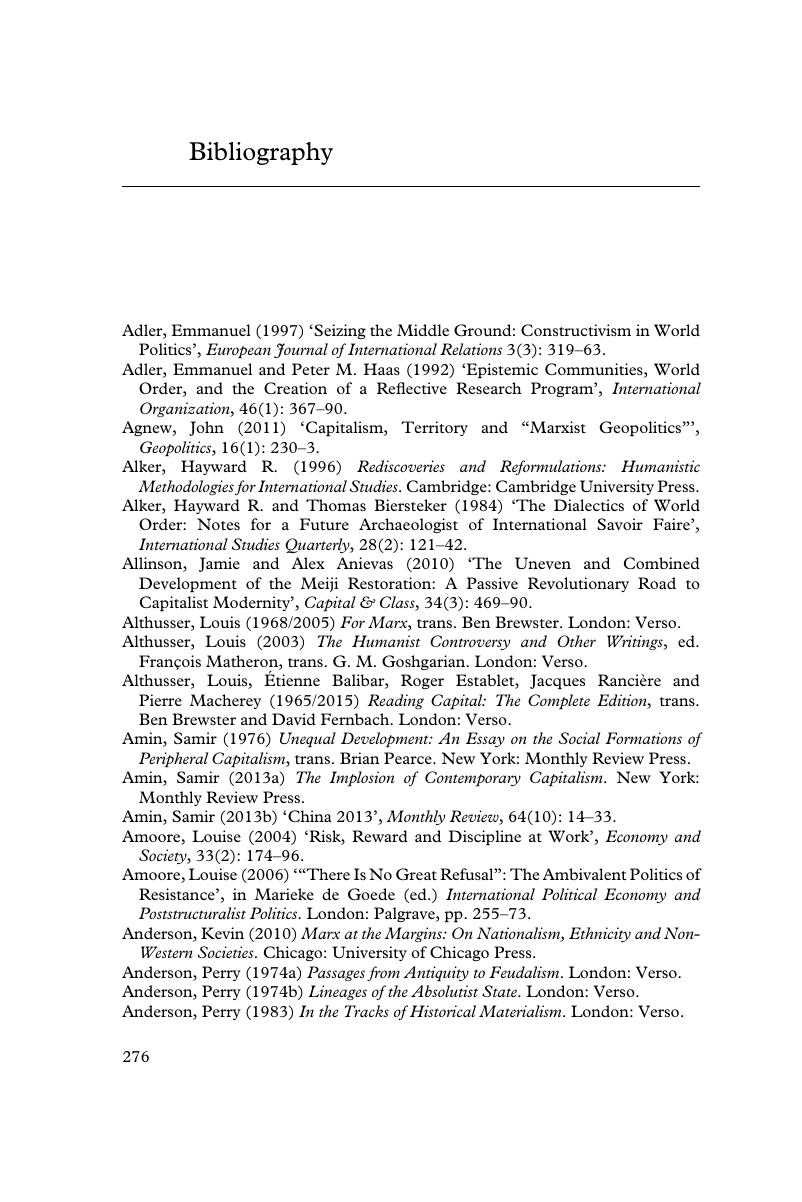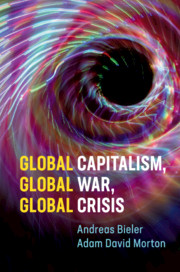Book contents
- Global Capitalism, Global War, Global Crisis
- Global Capitalism, Global War, Global Crisis
- Copyright page
- Dedication
- Contents
- Tables
- Figures
- Acknowledgements
- Abbreviations
- Introduction
- Part I Conceptual Reflections
- Part II Thematic Considerations
- Part III Empirical Interventions
- Conclusion
- Bibliography
- Index
- References
Bibliography
Published online by Cambridge University Press: 30 April 2018
- Global Capitalism, Global War, Global Crisis
- Global Capitalism, Global War, Global Crisis
- Copyright page
- Dedication
- Contents
- Tables
- Figures
- Acknowledgements
- Abbreviations
- Introduction
- Part I Conceptual Reflections
- Part II Thematic Considerations
- Part III Empirical Interventions
- Conclusion
- Bibliography
- Index
- References
Summary

- Type
- Chapter
- Information
- Global Capitalism, Global War, Global Crisis , pp. 276 - 315Publisher: Cambridge University PressPrint publication year: 2018

